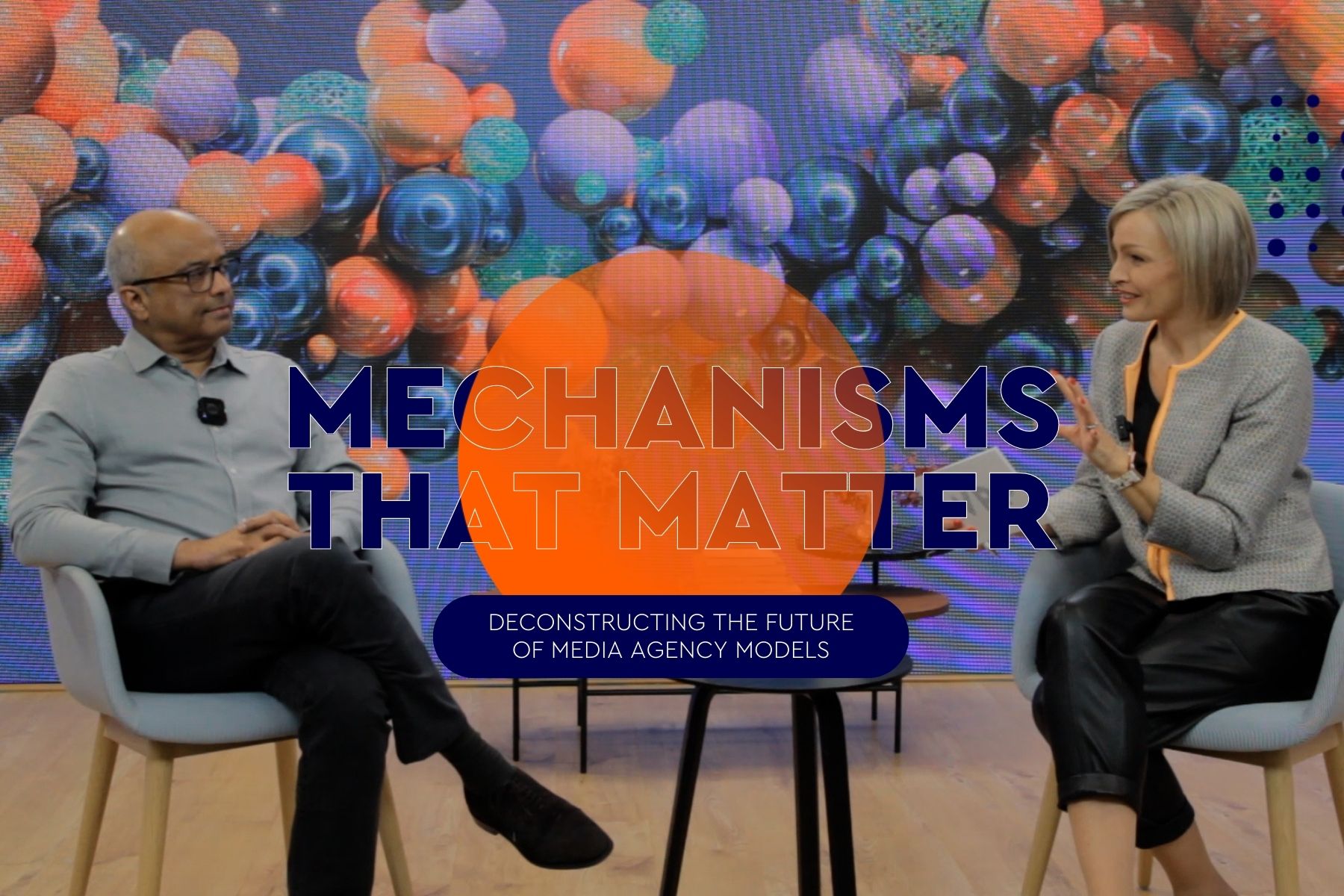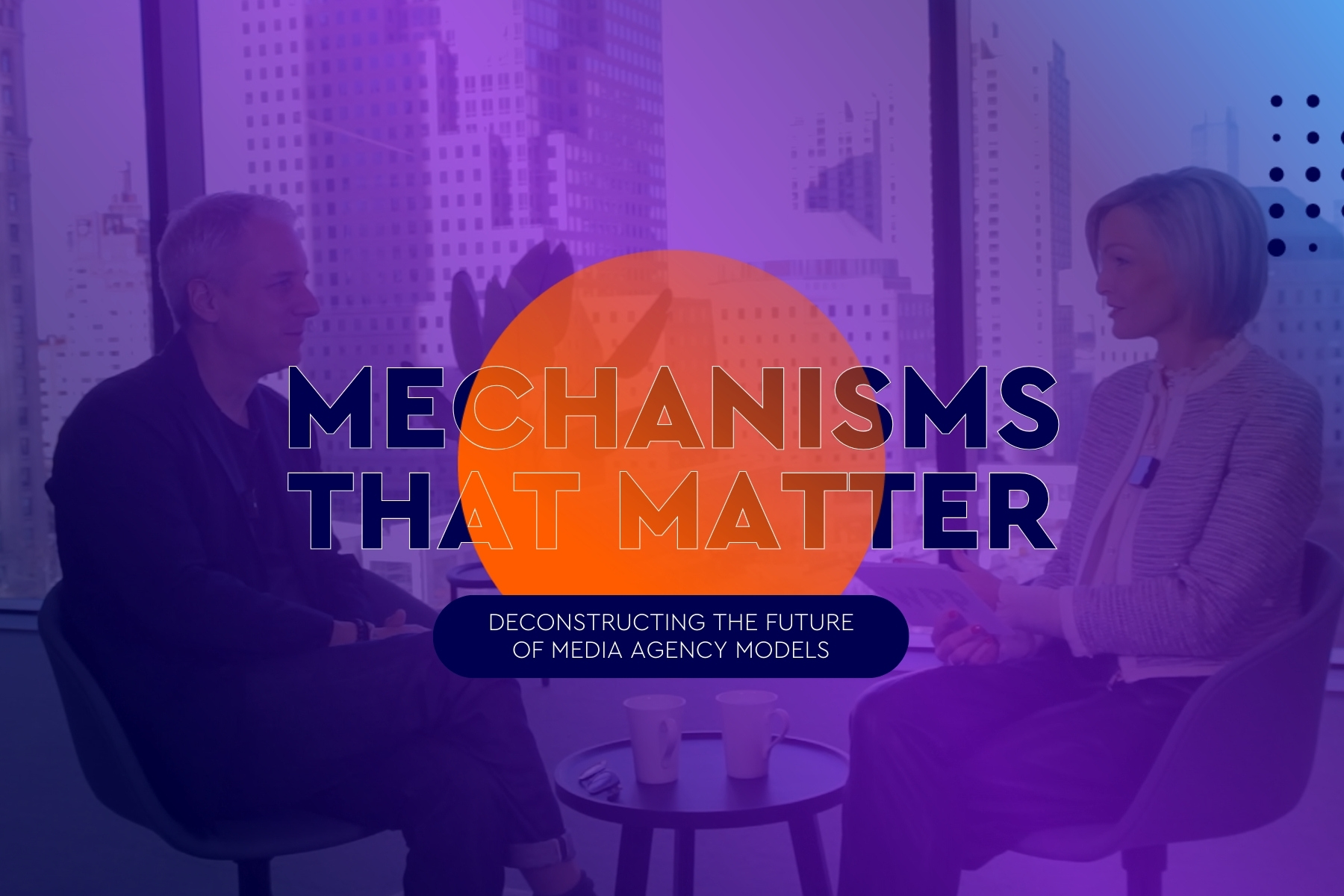Inclusion champions: Demet İkiler and Aisling Ryan
Why inclusion is good for business
Show this article in Chinese, French, Portuguese (BR), Spanish
To coincide with the meeting of WPP’s new global Inclusion Council in September, and National Inclusion Week across the UK, WPP is bringing together 12 changemakers from across the network. These individuals are driving key conversations around inclusion and diversity and the industry-wide agenda forward. Across six conversations they discuss action, initiatives, and the power of advertising and marketing to create change in wider society.
Demet İkiler, CEO at GroupM EMEA and WPP Country Manager in Turkey, talks to Aisling Ryan, Managing Partner at WPP & Ogilvy Consulting’s The Corporate Practice, about allyship, their gender equality work with the United Nations and why inclusion is good for business.
Demet İkiler, CEO at GroupM EMEA and WPP Country Manager in Turkey (She/Her/Hers): I’ve had many challenges, because throughout my career I’ve always been building something from the very early stages. The first Mindshare in Turkey, the first GroupM in Turkey, the first WPP Country Manager in Turkey. But beyond that, Turkey has been probably the biggest challenge itself as a country, because if you look at the past 20 years, it's been like a roller coaster. There has been a financial crisis, a big earthquake, terrorist attacks – there has been a big disaster every two years. So we’re always dealing with ambiguity and uncertainty. Always having a plan B, and getting ready to respond, depending on how things go – that’s given me resilience, which is really helpful today.
Also I was a young mother when I took my Mindshare job. I had a baby at home and a baby at work. So that was a big challenge. We all grew up together – my son, myself and the company.
It’s that experience which triggered me to try to help other women who are going through the same phases in their lives. I started mentoring, coaching personally and now, with GroupM – it is one of the only companies in the communications industry in the country that has signed up to the government gender equality pledge.
In Turkey, with WPP, we're now working with the United Nations Global Compact (UNGC), the business platform for the United Nations. I am the Vice Chairman in UNGC, and I'm leading the diversity and inclusion chapter for UNGC.
Aisling Ryan, Managing Partner, The Corporate Practice, WPP & Ogilvy Consulting (She/Her/Hers): Amazing. It’s also something I’m really passionate about. I worked for Kantar and WPP to set up the world's first level-gender attitudinal study for UN Women on the Unstereotype Alliance, and that's just been released again. I think that was pretty important because it's a global study that really monitors attitudes and behaviours and sees that shift.
I've also been involved in setting up the relatively new diversity and inclusion practice at WPP. We're excited to work with Monique Nelson and Doug Freeman of UWG, and various other colleagues, like Shelina Janmohamed, to set that up and look at how we can work with corporate clients and with brands. Not just to foster diversity and inclusion because it's the right thing to do, which obviously it is, but as Monique would say, that has been the right thing to do for 40 years and it still hasn't created a change. We are trying to also look at how you can really develop what we call diversity five pointers. Moving it from compliance and just diversity in terms of workplace and workforce all the way through to how it informs the marketplace, how that informs innovation, how that informs the entire business model, so that it becomes integral to every business and to life in general. I feel very privileged to work with those partners.
Dİ: It’s so important to have great partners and people to share and collaborate with on these projects. The first meeting that I had in my new EMEA role, with all of the different markets that it encompasses, was about what we can do to help with coronavirus relief. We started doing these calls with all the leaders of the EMEA countries to discuss the specific initiatives in different markets. We're learning from each other as there are so many nuances between countries and markets.
I think once a leadership team is committed to changing things, once a leadership team is committed to see things from different perspectives, and once a leadership team is open to embracing people so that they feel that they belong, then the conversation around inclusivity will never end. I feel that’s exactly what’s happening at WPP and GroupM.
We've created initiatives such as the reverse mentorship programme, the Bridge. As part of this we’ve started talking about key areas of inclusion. I'm a mentee myself and, despite being someone who is hugely engaged in inclusion and diversity initiatives, I'm learning more about the daily life challenges, historical challenges and structural/institutional challenges.
Also, another key initiative we’ve been involved in which I’m proud of is the Istanbul Convention. The pledge, which aims to prevent violence against women, was launched in Turkey in 2011. Violence against women in Turkey is really a serious issue. Just last year almost 500 women were killed. Femicide is scarily high. As WPP in Turkey, we stood up, with all our leaders taking part, against it. The campaign was recognised globally with people posting black and white pictures in support.
I think once a leadership team is committed to changing things, once a leadership team is committed to see things from different perspectives, and once a leadership team is open to embracing people so that they feel that they belong, then the conversation around inclusivity will never end. I feel that’s exactly what’s happening at WPP and GroupM.
AR: Definitely. I think that, like everything, you have leaders and laggards and everything in between, and some brands and companies are genuinely leaning into this. Some of them have been braver, some of them have been less brave, but I think that ultimately what we're moving to in this world is that, it used to be cause versus commerciality, and now I think that we're moving to a new model, and we need to invent a new model that really marries cause and commerciality.
One of my favourite quotes is, "A principle is only a principle when it costs you something". I think that is really true of brands and corporations now. You've got to have a point of view and you've got to be prepared for it to cost you something. You've got to live by that and I think that consumers are demanding that that happens.
Also, if you're looking at investors, they’re looking for companies that have strong ESG (environmental, social and governance) factors, and strong performance. In fact, we noticed that companies with strong ESG performance have outperformed in the COVID-19 period compared to those with lower ESG factors. It's fundamental to business success. So investors are de-investing from companies that don't have those strong factors and consumers are voting with their wallet not to buy from those companies.
Dİ: Are there any campaigns which you think are particularly interesting and which talk to themes of inclusion?
AR: I like the campaign that VMLY&R just did called Reclaim Her Name, which was for Baileys and the Women's Prize for Fiction. It looks at reclaiming the names of women who had to write under a nom de plume. And we think of that as something that's an antiquated issue, but actually it's still an issue for women writing today, where they are almost discriminated against because they're female writers.
Dİ: I really like the campaigns where the stereotypes are challenged head on – so for example, the Gillette campaign The Best Men Can Be – particularly when it is challenging the concept of masculinity. I think it is so important for men to be included in conversations around gender and gender stereotypes and more widely with the inclusion conversation.
Allyship is so important as it's not about the minority, but it's about changing the perspectives of everyone and then helping people understand how they can contribute.
How do you think businesses can engage men more or better as allies to achieve gender equality?
AR: Well, I think they have to acknowledge and deal with the prevalence of male privilege. We have all experienced wonderful male champions in our career, but many women would argue that they've come across the experience such as men talking over women in meetings, or being overly dominant in meetings – those sorts of unconscious behaviours that are really, really damaging, to more overt sexism or blocking.
So I still think that there is work to be done in educating men about really self-examining whether they are truly championing women, and really looking at some of their unconscious bias and behaviours to see if they are truly being allies or not.
But I absolutely believe that men are pivotal to creating this shift because essentially it is the attitudes of men that have held women back. If we can't change the attitudes of men, how are we ever going to make progress?
I think that we have the power to use these skills to creatively transform not only brands and businesses, but the society that we live in and the world that we leave behind.
Dİ: I see this as our daily challenge and it’s actually aligned with WPP’s creative transformation positioning. It's all about putting different lenses, seeing pictures from different angles, and then coming up with the ideas which we could help you to make things differently. This is what WPP is committed to doing, and we are committed to the same thing.
AR: I feel very passionately about creative transformation. It means using our collective skills to create the leap that can really accelerate positive impact for people, for profit, for businesses and for the planet. It should mean reinventing growth for this new, more progressive world order. A world that's fair, that's more inclusive and more sustainable. I think that we have the power to use these skills to creatively transform not only brands and businesses, but the society that we live in and the world that we leave behind. How can we use our skills much more broadly to work with governments, to work with NGOs, to work more broadly, to accelerate a positive impact?
We have that capacity to do that, to be inventive, to be insightful, to be creative in how we tackle the world's biggest challenges.
Read more from our Inclusion Champions in conversation series
published on
28 September 2020
Category
More in Communications

Mechanisms that Matter – How India is fuelling growth for global brands
CVL Srinivas tells Anna Hickey how WPP Open is fuelling a testbed for new working models, innovation, and automation.

Media in India: the future is now
Brands pursuing the Indian market must focus on personalised experiences and data-driven strategies

Mechanisms that Matter – Inside our partnership with Google
Richard Hartell, WPP’s Global Client Lead for Google and CEO at Media Futures Group, talks to Anna Hickey

